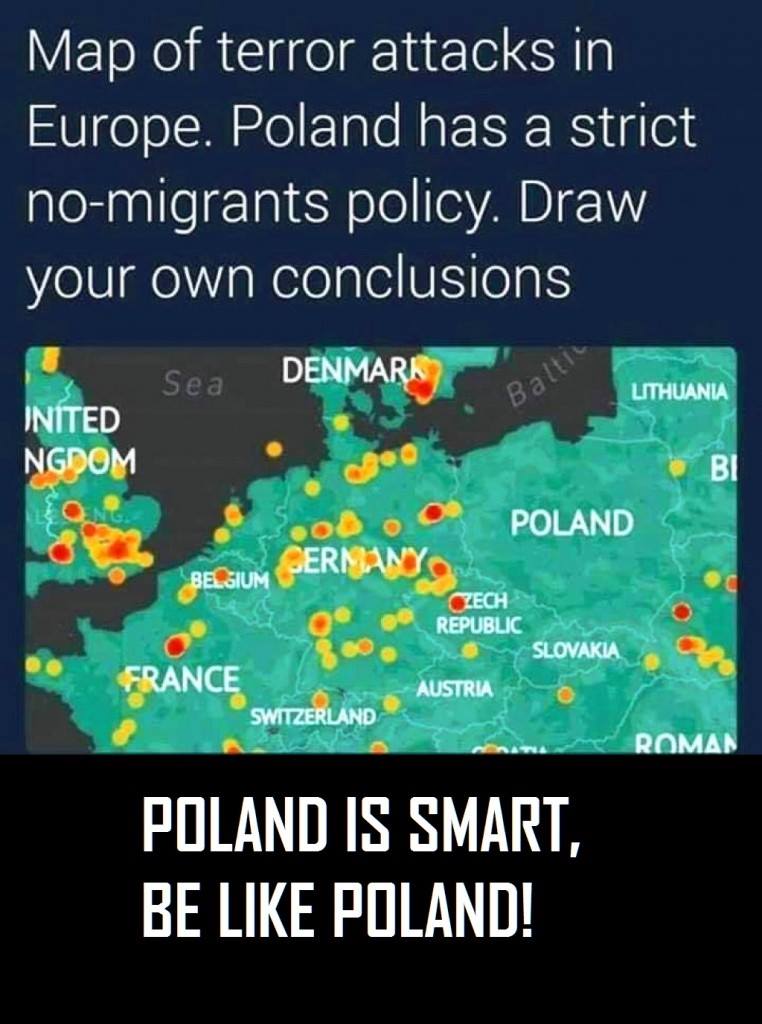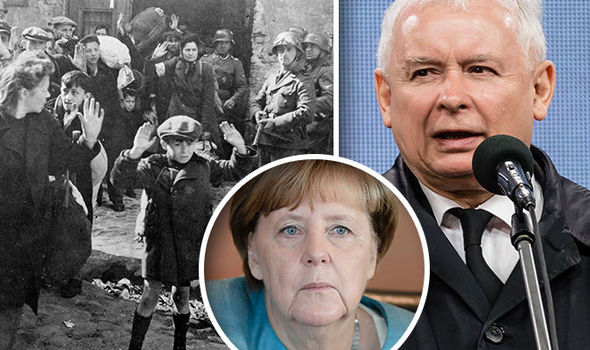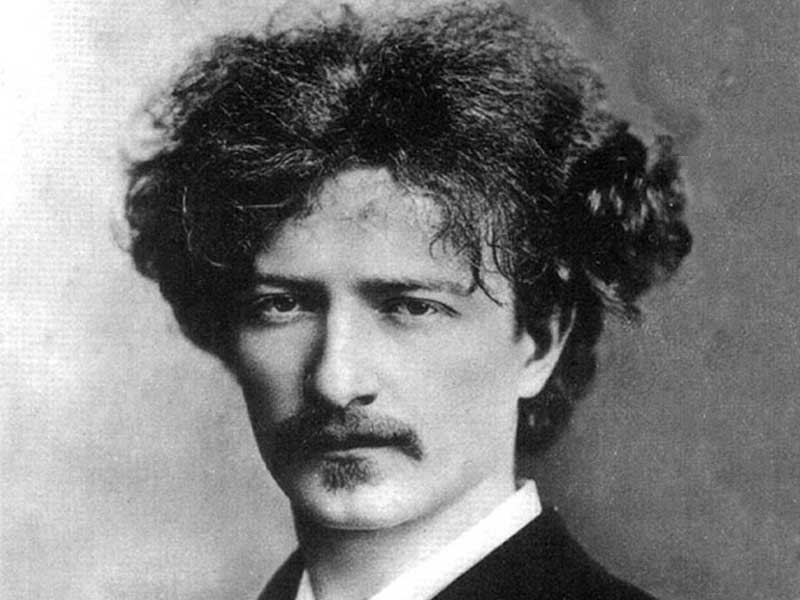Tag: Poland
Poland Demands $1 Trillion In WW2 Reparations From Germany
Poland refuses to take it’s EU immigrant quota. Germany threatens to fine Poland $75 million. Poland responds by demanding $1 trillion in WW2 reparations from Germany.Relations between Germany and Poland have been strained over Germany’s push to share responsibility for refugees across Europe – which Poland has rejected. From The Independent:
France and Germany recently stated that Poland should be forced to receive some of Europe’s new Trojan Horse inhabitants and this is their response. One that actually reflects the opinions of the people. Poland also has a booming birthrate, unlike most European countries, so they cannot use that excuse against them to get what they want. Germany to Poland: We’d like to send a group of violent young men into your country who want to see your way of life eradicated and your people put into slavery…oh but don’t worry this isn’t an invasion, its humanitarianism. |
Drone Video Of Auschwitz
A hauntingly chilling drone video of the Nazi concentration camp Auschwitz.
Drone video shows the Auschwitz-Birkenau concentration camp as it is today – 70 years after it was liberated by Soviet troops. The camp in Poland is now maintained as a World Heritage Site and is visited by thousands of tourists and survivors every year. Auschwitz was the largest camp established by the Germans during World War II. More than a million people – the vast majority of them Jews – died there between 1940, when it was built, and 1945, when it was liberated by the Soviet army.
Railway tracks into Auschwitz-Birkenau – Trains filled with victims from throughout occupied Europe arrived at the camp almost every day between 1942 and the summer of 1944.
Ruins of wooden huts at Birkenau – Birkenau (or Auschwitz II) was erected in 1941 solely as a death camp, the wooden huts are now in ruins with only brick fireplaces and chimneys remaining.
Entrance to Auschwitz I -The wrought-iron sign over the entrance bears the words Arbeit Macht Frei – “Work sets you free”.
Auschwitz I – The brick-built buildings were the former cavalry barracks of the Polish Army.
Courtyard between blocks 10 and 11 at Auschwitz I – Block 11 was called “the Block of Death” by prisoners. Executions took place between Block 10 and Block 11 and posts in the yard were used to string up prisoners by their wrists.
Auschwitz Birkenau is now a museum run by the Polish Culture Ministry, and a Unesco world heritage site.
Paderewski And Hoover – The Power Of Giving
This is a true story that had happened in 1892 at Stanford University.
An 18-year-old student was struggling to pay his fees. He was an orphan, and not knowing where to turn for money, he came up with a bright idea. A friend and he decided to host a musical concert on campus to raise money for their education.
They reached out to the great pianist Ignacy J. Paderewski. His manager demanded a guaranteed fee of $2000 for the piano recital. A deal was struck and the boys began to work to make the concert a success.
The big day arrived. Paderewski performed at Stanford. But unfortunately, they had not managed to sell enough tickets. The total collection was only $1600. Disappointed, they went to Paderewski and explained their plight. They gave him the entire $1600, plus a cheque for the balance $400. They promised to honor the cheque at the soonest.
“No,” said Paderewski. “This is not acceptable.” He tore up the cheque, returned the $1600 and told the two boys: “Here’s the $1600. Please deduct whatever expenses you have incurred. Keep the money you need for your fees. And just give me whatever is left”. The boys were surprised, and thanked him profusely.
It was a small act of kindness. But it clearly marked out Paderewski as a great human being.
Why should he help two people he did not even know? We all come across situations like these in our lives. And most of us only think “If I help them, what would happen to me?” The truly great people think, “If I don’t help them, what will happen to them?” They don’t do it expecting something in return. They do it because they feel it’s the right thing to do.
Paderewski later went on to become the Prime Minister of Poland. He was a great leader, but unfortunately when the World War began, Poland was ravaged. There were more than 1.5 million people starving in his country, and no money to feed them. Paderewski did not know where to turn for help. He reached out to the US Food and Relief Administration for help.
The head there was a man called Herbert Hoover — who later went on to become the US President. Hoover agreed to help and quickly shipped tons of foodgrains to feed the starving Polish people.
A calamity was averted. Paderewski was relieved. He decided to go across to meet Hoover and personally thank him. When Paderewski began to thank Hoover for his noble gesture, Hoover quickly interjected and said, “You shouldn’t be thanking me, Mr. Prime Minister. You may not remember this, but several years ago, you helped two young students go through college in the US. I was one of them.”
The world is a wonderful place. What goes around comes around!


